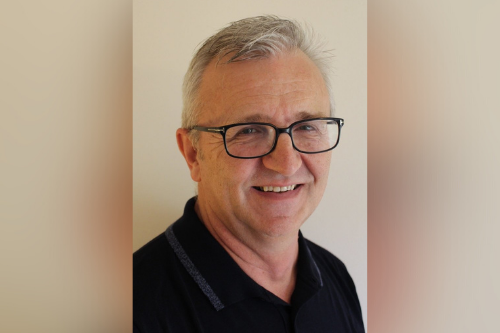

In the view of Australian Accident Management Commercial (AAMC) – the sponsor of the general insurer claims team of the year prize at the upcoming Insurance Business Australia Awards – the motor assessor’s role will become much more specialised and niche. Here AAMC sales & strategic relationship manager Daniel Lukich (pictured) talks about the opportunity ahead, while sharing what the business is observing in areas such as loss assessing and repair management.
Lukich, whose camp has been integrating digital innovations within its growing end-to-end repair management proposition, noted: “As digital technology and AI (artificial intelligence) gradually becomes a greater factor in processing motor claims and direct repair programmes mature, the traditional role of a motor assessor is rapidly changing.
“Smart use of digital technology within the motor claims process will greatly enhance the customer experience and enable insurers to accurately identify damage and allocate the most appropriate path for the repair, right from the time of lodgement. This is inevitable, the right approach, and is meeting demands of consumers.”
The AAMC executive highlighted that the assessor’s remit will be focussed on specific skills and expertise spanning complex claims, repair techniques, fraud, and litigated activity.
“AAMC’s ongoing focus in skills training, assessor development, mentoring programmes, and philosophy of allocating the appropriate skillset for the occasion is still going to be very much required,” said Lukich, “more so as the modern motor vehicle’s complexity increases and the growing skills gap within the industry widens.
“Digitisation and automation will address shortcomings in the speed and accuracy of claim lodgement and evidence gathering, but there will always be a need to physically inspect certain claims, meet and talk to people on-site, and ensure that a repairer is adequately equipped and capable to have the vehicle repaired correctly at the right price and in a timely manner.”
According to Lukich, it’s about assisting across the whole motor claim spectrum, including interacting with and updating policyholders throughout the repair process, while at the same time taking out unnecessary duplication. The goal, he stressed, is to reduce claims handling expense and claim cycle time, ultimately controlling the overall claims spend.
The challenge, though, lies in making the industry put the same technological focus on claims as it does on the first part of the insurance process.
Lukich told Insurance Business: “To me the biggest challenge insurers have, from a consumer and broker point of view, is integrating digital technology within the motor claims process. It’s evident that insurers have embraced technology to enable a better consumer experience; however, this has been firmly focussed on ease of obtaining a quote, purchasing, and maintaining a policy.
“A motor claim, in the main, is still very much a multi-step, analogue experience via telephone or an online form that generates a follow-up phone call and the need to travel to and from repairers for the purposes of obtaining quotes.”
With COVID-19 having accelerated consumers’ comfort and familiarity with devices, apps, and QR codes in nearly all aspects of daily life, Lukich said digital is now the preferred method of interaction for many, even for older generations.
“We experience the whole gamut from being appointed at the time of FNOL (first notice of loss) where early involvement minimises overall repair cost and enables a quality claims outcome, right through to seeing claims go through multiple internal decision points where they can be over two weeks old before we’re appointed,” he added. “A happy customer this does not make.”
Lukich, who came onboard about three months ago to help align AAMC’s service offerings, went on to state: “For some insurers we provide an overflow capacity; others a specialist capability such as heavy commercial, agricultural machinery, or managing third parties; and for some we play a more strategic role within their motor claims process, incorporating everything from customer contact through to the provision of a repair network and managing total losses and arranging hire cars.
“The thing I’m most excited about is the opportunity for AAMC to play a more prominent and strategic partnership role within our clients’ current and future motor claims handling strategies, sharing our wealth of knowledge across this sector and with that all the nuances and pitfalls that can negatively impact cost, quality, and timeliness.”
Prior to the pandemic, the 18-year-old organisation was processing more than 100,000 assessments on a yearly basis.
This year’s Insurance Business Australia Awards will take place virtually on November 12. The event will feature the exclusive stream of the awards presentation, as well as online networking opportunities such as peer matching and a live chat. You can register here.
